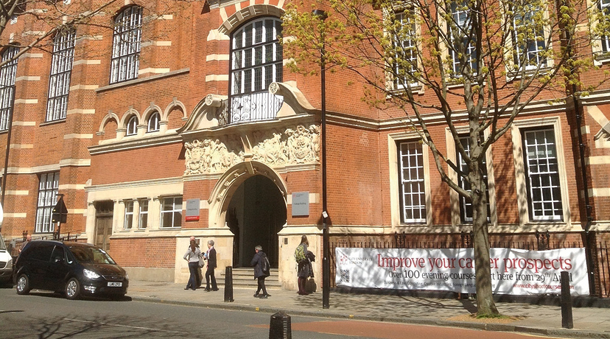Get Into Games 2015: City University London

At first glance, cricket and programming don’t seem to have much in common. But both require a head for numbers – something Dr Chris Child, who’s an expert in both fields, certainly has. Child has been a lecturer in game technology since 2005, the same year he founded his own studio, Childish Things, which now develops the International Cricket Captain series. Prior to that, Child spent time at Empire Interactive and Microsoft’s Development Lab. Here he explains his university’s steadfast focus on technical skills.
What can students study at City?
We offer game technology courses at BSc (Computer Science with Games Technology), MSc (Computer Games Technology), and MSci (Computer Science Games Technology) levels. These are technical qualifications aimed at programming roles in the game industry.
With so many tutorials online, why should anyone plump for a degree in programming?
Competition for jobs in the game industry is intense… A game degree is not essential to most employers, but given a choice between two candidates with similar qualifications, the game graduate will have relevant experience that will give them the edge. We’ve also found that game graduates are highly sought after in other parts of the computing industry, since they have excellent programming skills.
Why should they choose City?
Our degrees focus on programming and employability. We equip our graduates with the skills they need to compete in the game industry through both a broad education in computer science and specialised modules taught by academics with extensive and current industry experience. We understand what the industry needs because our staff are making games and run game companies. And we also have an incubator team, which helps students who want to develop their final projects commercially. Applicants to the MSc program are eligible for a £2,000 bursary, and last year the quality of intake was so high that all our students qualified for this. Outstanding students – that’s anybody with ABB or above in A-levels or equivalent qualifications – entering the undergraduate and MSci programmes are also eligible for a scholarship of £3,000 a year.
Is there any external industry influence on your courses?
The courses were initially developed with the advice of Steve Hickman, who was producer on the FlatOut series, myself and a team of academics at City University. And we’re setting up an industry advisory board with members from Rockstar, Sony and Criterion.
London’s attractions are well known, but what other benefits does your location offer?
London is obviously a fantastic city to live and work in, and City University is particularly well placed next door to Tech City, which is the hub of game and visual effects development in London. We’re also a five-minute walk from Upper Street and its vibrant nightlife.
How can your students get involved with Tech City?
Our dedicated placements unit finds positions for students and has both well-established contacts with major companies and new contacts within a range of smaller startups, particularly in Tech City. The unit has been established for 30 years and has been working with the game industry for over ten.
Sign up to the GamesRadar+ Newsletter
Weekly digests, tales from the communities you love, and more
Which aspect of your own facilities are you most proud of?
We have a fully equipped game technology lab, with a 3D projector and development kits. We also have an interaction lab, which has facilities focused on user experience, including research design and evaluation.
Edge magazine was launched in 1993 with a mission to dig deep into the inner workings of the international videogame industry, quickly building a reputation for next-level analysis, features, interviews and reviews that holds fast nearly 30 years on.



